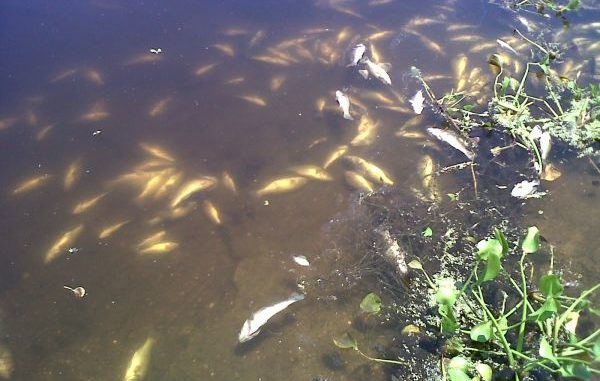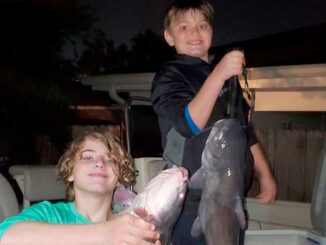
Some freshwater areas likely affected for a couple of years; saltwater fishing shouldn’t be impacted.
Final numbers aren’t in yet, but the Louisiana Department of Wildlife & Fisheries said anglers in certain freshwater areas of Southeast Louisiana likely will feel the impact of Hurricane Isaac-related fish kills.
“Bayou Lafourche and the Amite River were some of the worst hit,” the LDWF’s Mike Wood said. “They were there in the epicenter of it and where we got the most calls.”Most of the kills came in freshwater areas, he said.
“I don’t know of any saltwater kills,” Wood said. “There may have been some dead fish in some areas …, but I don’t know of any serious saltwater kills at all.”
Most of the fish killed in the storm were drum, bass, shad, crappie and sunfish, but heartier fish such as gar and bullhead were mostly spared, Wood said.
Outside of Bayou Lafourche and Amite River, Wood said numerous less-significant pockets of kills were reported throughout the region.
Overall WLF is reporting the storm does not seem to be as bad as past storms.
“I was just talking to someone who has dead fish behind their house and it is really serious to them, but in terms of scale — as far as tropical storms to our state — this could have been much worse,” Wood said. “After Hurricane Andrew, for example, it was just death and devastation. We had over 200 million fish lost overnight in a storm surge.”
That said, the Isaac-related fish kill will likely affect local fisheries for up to two years. But Wood said fisheries in the past have usually rebounded rather quickly from similar events.
“I would expect a tremendous spawn in the affected areas next spring,” he said. “It is the tendency of those fish to have a productive spawn, and in the absence of predation those young fish survive fairly well.
“We’re going to get a great spawn next year followed by good fishing shortly thereafter, so it’s a short-term hit.”
Such kills are just part of the landscape of South Louisiana, so Wood said he wasn’t concerned about long-term impacts.
“(Hurricanes) have been happening for millions of years,” he said. “So our Louisiana coastal fisheries have acclimated to that; essentially, we probably have some of the most-resilient fish populations ever.”
Wood said WLF will continue to study the effects of Isaac’s fish kill and is looking into placing a minimum size on bass and, if necessary, stock some of the affected areas, but no decisions have yet been made.
Wood expects a formal report on the fish kills statewide will be released within the next few weeks.
